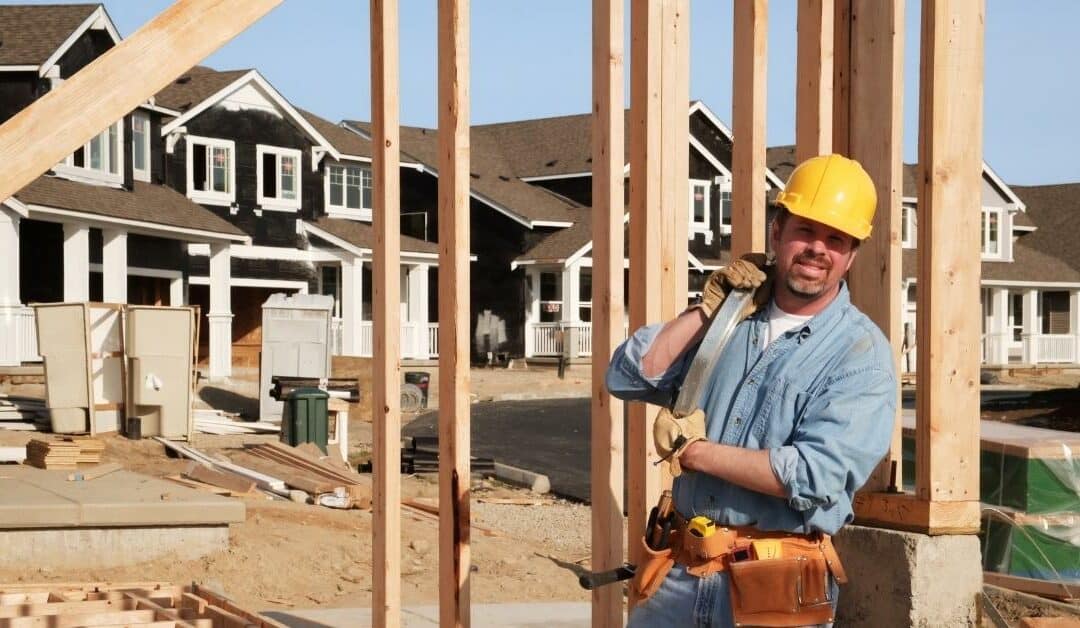If you recently purchased a new construction home and are experiencing problems, you may wonder what your legal options are. Construction defect law can seem complex, but don’t worry! This blog post will discuss the basics of construction defect law in Texas and outline your options if you find yourself in this situation.
What are Construction Defects?
As a homeowner in Texas, there is a good chance that you will eventually encounter some construction defects. These are deficiencies in your home’s design, construction, or performance that affect its habitability, safety, or value.
You may be dealing with a construction defect if you have a complaint against a contractor concerning:
- Design
- Construction
- Repair of a new residence
- Appurtenance to a home (a shed, pool house, separate garage, etc.)
You have constructions defects anytime a home builder leaves any deficiency in the design, construction, or performance of a dwelling that:
- Affects your ability to live there (habitability)
- Might threaten your life, health, or safety
- Causes physical damage to your new home
- Substantially interferes with your use and enjoyment of your new home
Some construction defects are apparent, while you may not discover others until months or even years after construction. So it makes sense to deal with the problems as soon as you find them.
Examples of Construction Defects in New Homes
Many different factors can contribute to construction defects. In some cases, the problem lies with the design of the home. In other instances, construction defects come from subpar materials or quality.
Some common examples of construction defects in new homes include:
- Leaks in the roof or windows
- Doors and windows that do not open or close properly
- Cracks in walls, ceilings, or floors
- Water intrusion
- Mold or mildew
- HVAC problems
- Problems with the foundation
These are just a few examples of the problems you may see in a new home. Defective construction can lead to all sorts of issues for homeowners. In addition to being unsightly and affecting the value of your home, construction defects can also pose serious safety hazards.
If you suspect your new home has construction defects, it is essential to take action as soon as possible.
Steps to Take If You Suspect Construction Defects in Your Home
Under Chapter 27 of the Texas Property Code, you must work through a process with your builder or contractor before filing a claim for damages.
Step 1
If you think your new home has construction defects, the first step is to notify your builder or contractor. It is essential to do this in writing to have a record of your complaint. If you think you may have a claim, you’ll need to send your contractor written notice of your complaints via certified mail, return receipt requested.
Write your notice to describe, in reasonable detail, the construction defects. This notice must include a description of the problem and your name, address, and telephone number.
Step 2
You must allow them (35 days) to inspect the property and determine whether or not the problem is indeed a residential defect. If the contractor asks for evidence of the construction defect, you’ll need to provide pictures or other proof of the residential construction defects. You’ll also need to let your contractor know what you need to remedy the problem.
Step 3
Wait for the offer. Your contractor has 45 days from receiving your notice of construction defects to make a written offer of settlement to you. In the offer, the contractor should describe in reasonable detail what repairs they are willing to do for your construction defect.
The contractor’s offer must include the following:
- An agreement to repair the defect OR
- An agreement to repair the defect by hiring an independent contractor
Step 4
You have 25 days from the day you receive the settlement offer to decide whether or not to accept it. It’s best to send a letter explaining your reasons for rejecting the offer if you decline it. If you choose not to accept the contractor’s offer within ten days, they may increase it.
Step 5
If you’re still having difficulties getting your builder or contractor to act, you might consider working with a local real estate attorney to take your next best actions and obtain the desired outcome.
Construction Defect Law: Recovering Damages
While you can resolve most construction defects through negotiation with your contractor, sometimes this is impossible. In these cases, knowing your rights under Texas construction defect law is essential.
If you can’t resolve your construction defects to your satisfaction, you may need to take legal action. Texas law provides homeowners with certain protections against construction defects.
In most cases, as a new homeowner with a construction defect, you may be entitled to receive monetary damages. These damages generally cover the following:
- Reasonable cost of repairs necessary to cure any construction defect
- Reasonable and necessary expense for the replacement or repair of any damaged goods in the residence
- Reduction in current market value after repair of a structural failure defect
- Appropriate and necessary engineering and consulting fees
- Reasonable expenses of temporary housing reasonably necessary during the repair period
- Necessary and reasonable attorney’s fees (1)
Even if you file a court claim for damages, the builder may legally choose mediation to settle your differences instead of civil court.
Bottom Line
If you need to take legal action against your contractor, it is essential to speak with an experienced construction defect lawyer. A real estate attorney can help you understand your rights and options under Texas law. They can also assist you in taking the necessary steps to recover damages for the construction defects in your home.
We Can Help
Our real estate legal team at Jarrett Law Firm works to bring you the best outcome for any new home issues you may face. We understand construction defect law, and how to work with builders and contractors to result in the new home you paid for and deserve. Contact us today to schedule a consultation.
We look forward to assisting you!

